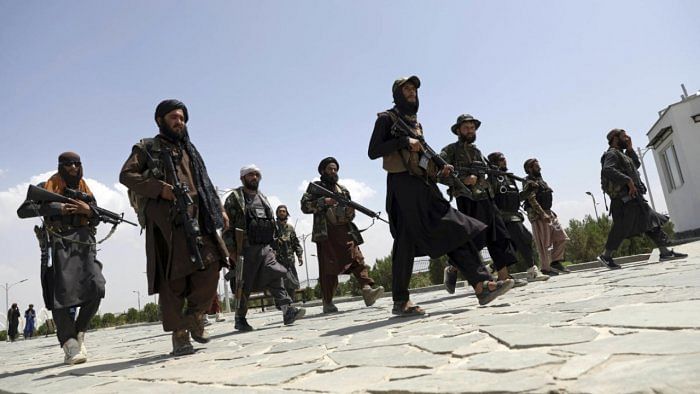
Western countries worked at a war-footing pace" on Tuesday to get people out of Afghanistan, a NATO country diplomat said, as US President Joe Biden looked set to come under pressure from other G7 leaders to seek more time to complete the airlift.
Widespread chaos punctuated by sporadic violence has gripped Kabul's airport, with Western troops and Afghan security guards driving back crowds desperate to flee following the Taliban's take over of the Afghan capital on Aug. 15.
Countries conducting the evacuations are trying to meet a Aug. 31 deadline agreed earlier with the Taliban for the withdrawal of foreign forces, a NATO diplomat told Reuters.
"Every foreign force member is working at a war-footing pace to meet the deadline," said the official, who declined to be identified.
Leaders of the Group of Seven (G7) countries - Britain, Canada, France Germany, Italy, Japan and the United States - will meet virtually later on Tuesday to discuss the crisis.
Biden, who has said US troops might stay beyond the deadline, has warned the evacuation was going to be "hard and painful" and much could still go wrong.
Democratic US Representative Adam Schiff, chairman of the House of Representatives Intelligence Committee, told reporters after a briefing on Afghanistan by intelligence officials that he did not believe the evacuation could be completed in the eight days remaining.
"I think it's possible but I think it's very unlikely given the number of Americans who still need to be evacuated," Schiff said.
A Taliban official said on Monday an extension would not be granted, though he said foreign forces had not sought one. Washington said negotiations were continuing. British Prime Minister Boris Johnson said ahead of the G7 meeting: "I will ask our friends and allies to stand by the Afghan people and step up support for refugees and humanitarian aid."
"The Taliban will be judged by their deeds and not their words."
Britain's defence minister, Ben Wallace, told Sky News he was doubtful there would be an extension "not only because of what the Taliban has said but also if you look at the public statements of President Biden, I think it is unlikely".
'Does it still hurt? Yes'
Many Afghans fear reprisals and a return to a harsh version of Islamic law that the Taliban enforced while in power from 1996 to 2001, in particular the repression of women and freedom of speech.
There have been isolated but numerous incidents of Taliban aggression and intolerance reported on social media, as well as reports of Taliban searches for old enemies, fanning those fears.
Nevertheless, thousands of Afghans have returned to their homes in the provinces after learning that the situation there was "relatively calm", said the NATO diplomat, while cautioning that scant intelligence and security reports were coming in from remote districts.
Australia evacuated more than 50 female Afghan Paralympians, athletes and their dependents after securing visas for them, the Australian Broadcasting Corp reported on Tuesday.
The G7 leaders could discuss taking a united stand on the question of whether to recognise a Taliban government, or alternatively renew sanctions to pressure the Islamist militant movement to comply with pledges to respect women's rights and international relations.
"The G7 leaders will agree to coordinate on if, or when to recognise the Taliban," said one European diplomat. "And they will commit to continue to work closely together."
Leaders of the Taliban, who have sought to show a more moderate face since capturing Kabul, have begun talks on forming a government, that have included discussions with some old enemies from past governments, including a former president, Hamid Karzai.
Recognition of a Taliban government by other countries would have important consequences, like allowing the Taliban access to foreign aid that previous Afghan governments have depended upon.
Biden will face pressure from other leaders to extend the Aug. 31 deadline for evacuations. France has said more time was needed, and German Foreign Minister Heiko Maas said on Monday the G7 needed to consider whether to remain beyond that date.
Biden has faced widespread criticism over the withdrawal, which was initiated by his Republican predecessor, Donald Trump, under a deal struck with the Taliban, and his opinion poll ratings have slipped.
For its part, the powerful US military has been grappling with the collapse of US-backed Afghan forces after 20 years of training. "Was it worth it? Yes. Does it still hurt? Yes," General David Berger, the commandant of the Marine Corps, wrote in a memo to Marines.